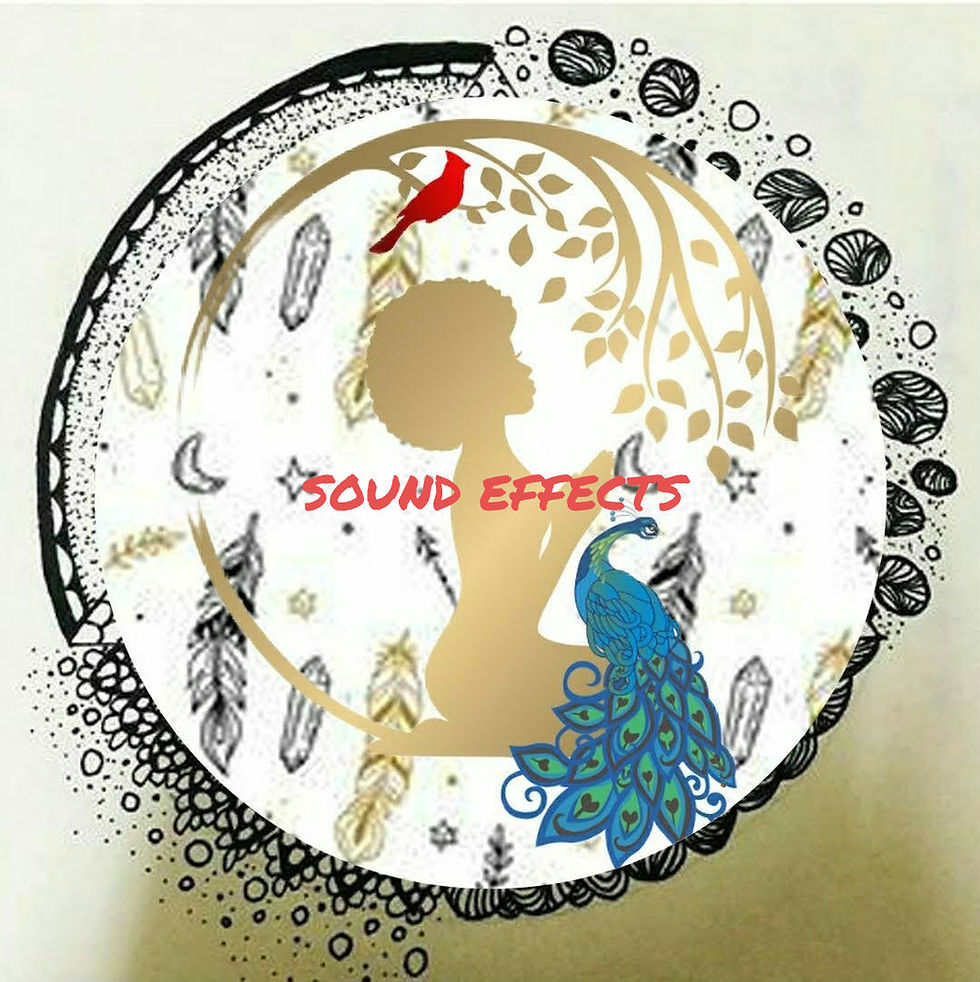Pieces of Integrative Healthcare: Gut Bacteria-The Regulator of Our Emotions
- Danelle Wilson
- May 12, 2023
- 4 min read
Updated: Jan 17
Is the bacteria in your body that makes up your "gut flora/intestinal bacteria" controlling your emotions? Sounds bizarre at first thought, right? Let me first take you through the basics. What is bacteria? Bacteria is a large group of single-cell (unicellular) microorganisms. Lets go further! Where can bacteria be found? After searching online I found out soil, water, plants, animals, radioactive waste, deep in the earths crust, artic ice and glaciers and hot springs have bacteria. Bacteria can even be found up to 30 miles into the atmosphere and in the ocean as deep as 10,000 meters. So basically everywhere you can and can't go as a human being. Lets move forward to how bacteria correlates with human development and existence.
Let's go even deeper to the beginning. Single-cell organisms lived on earth 3 billon years ago before oxygen was available for any multicellular organisms. Cyanobacteria (green-blue algae) were responsible for producing the first oxygen in the Earth's atmosphere through the process of photosynthesis. The chlorophyll found in this bacteria started the exchange process of carbon dioxide from Earth's atmosphere into oxygen. Then passing this gift to plants so that the evolution of the animal kingdom is possible.

Our DNA is our code, the unique code that make us "who we are", gives us our eye, hair, skin color etc. The bacteria in our intestinal environment has genes also, 100x as many genes as our own.
During the birthing process each person will receive their first dose of ingested bacteria that will set the stage for their wellness. Starting life through vaginal birth, bacteria transmission will be via the birth canal and C-section deliveries via skin contact. This will be the first bacteria that enters the mouth to set up the brain/gut bi-directional communication system. This brain/gut communication system is powered by the vagus nerve and will drive your emotional reactions and physiological state of health depending on your bacteria composition.
One study, published in the journal Gut in 2016 found that the gut microbiota of C-section infants remained different from those of vaginally born infants for up to 2 years of age, and that this difference was associated with a higher risk of developing immune and metabolic disorders including asthma, allergies, obesity, and diabetes. Other factors can determine the composition of your gut flora such as diet (low fiber and processed foods decrease gut bacteria), antibiotic therapy, stress, alcohol and tobacco use.
Watch

Are we just walking bodies controlled by many unicellular organisms?!? Lets move on this is getting weird.
Photo/image cite (Oroojzadeh P, Bostanabad SY, Lotfi H. Psychobiotics: the Influence of Gut Microbiota on the Gut-Brain Axis in Neurological Disorders. J Mol Neurosci. 2022 Sep;72(9):1952-1964.
Recent research has suggested that the bacteria composition in our gut can impact our mood and emotional state. One study published in the journal Psychopharmacology found that certain types of gut bacteria can influence mood and cognitive function by altering the levels of neurotransmitters in the brain.
A review of studies published in the journal Brain, Behavior, and Immunity also found that probiotics (bacteria found in certain foods) can have a positive impact on mood and cognitive function.
While the research is still in its early stages, these findings suggest that the bacteria in our gut can play a significant role in our emotional and mental well-being.
There are many different types of bacteria that can be found in the gut, some of which have been studied in relation to mood and emotions. Here are a few examples:
1. Bifidobacterium: This type of bacteria is commonly found in the gut and has been shown to reduce symptoms of depression and anxiety.
2. Lactobacillus: Lactobacillus is another common type of gut bacteria that has been linked to improved mood and brain function.
3. Faecalibacterium: This type of bacteria has been associated with reduced anxiety and stress levels.
4. Akkermansia: Akkermansia is a type of bacteria that has been linked to reduced inflammation and improved gut barrier function, which may improve mood and mental health.
So back to my question: Are we just walking bodies controlled by many unicellular organisms? Possibly! If not for bacteria's communication with the sun and the central nervous system of animals from gut to brain, would we even exist? So yes gut flora/intestinal bacteria are the puppet masters of thoughts and emotions according to the research.
Psychobiotics are probiotics used to impact mental health. Oral supplementation is generally the most common way to ingest probiotics but with advanced treatment techniques, fecal transplant is another more effective way to allow the bacteria to implant directly into the intestines. Just think we can ask family and/or friends to donate human waste to increase our wellbeing. I'm not making this up!!!
Foods that promote gut health: https://youtube.com/shorts/nM8hQXe-368?feature=share
In conclusion the ultimate reason for this post is to increase your awareness of "good bacteria". Mastering the complexities of our body structures and systems can appear complicated, but no. Holistic wellness can be as simple as consuming a single cell organism called a germ to most but also known as the stress regulator, the focus enhancer, and the digestion catalyst.
Always consult with a healthcare professional before taking any supplements to discuss interactions related to illness and/or prescribed and over-the-counter medications.
Below are options for integrating healthy bacteria into your gut for optimal wellbeing.
Hormone tea will assist in balancing emotions, reactions and physical responses to our lives. Ingredients such as Ashwagandha root, Black Cohosh Root, Chaste Tree Berry, Dandelion Root, Dong Quai Root, Fenugreek seed, Holy Basil and much more to assist in balancing hormones and the response of the brain-gut connection.
Digestion and detox probiotic contains 6 active probiotic cultures and clinically studied prebiotic fiber.
A Perspective by Danelle Wilson RN: Founder of Comfortable Skin LLC



Comments